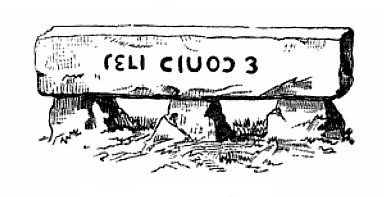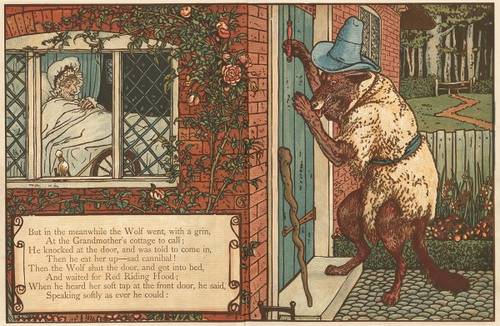Advance each letter in GNAT 13 places through the alphabet and you’ll get GNAT reversed — or TANG:

Advance each letter in GNAT 13 places through the alphabet and you’ll get GNAT reversed — or TANG:

Advertisement in a Manchester paper, 1829:
SPANKER:
The Property of O— D—.
Saturday, the 16th September next, will be sold, or set up for sale, at Skibbereen:
A strong, staunch, steady, sound, stout, safe, sinewy, serviceable, strapping, supple, swift, smart, sightly, sprightly, spirited, sturdy, shining, sure-footed, sleek, smooth, spunky, well-skinned, sized, and shaped sorrel steed, of superlative symmetry, styled SPANKER; with small star and snip, square-sided, slender-shouldered, sharp-sighted, and steps singularly stately; free from strain, spavin, spasms, stringhalt, staggers, strangles, surfeit, seams, strumous swellings, scratches, splint, squint, scurf, sores, scattering, shuffling, shambling-gait, or sickness of any sort. He is neither stiff-mouthed, shabby-coated, sinew-shrunk saddlebacked, shell-toothed, skin-scabbed, short-winded, splay-footed, or shoulder-slipped; and is sound in the sword-point and stifle-joint. Has neither sick-spleen, sleeping-evil, snaggle-teeth, subcutaneous sores, or shattered hoofs; nor is he sour, sulky, surly, stubborn, or sullen in temper. Neither shy nor skittish, slow, sluggish, or stupid. He never slips, strips, strays, starts, stalks, stops, shakes, snivels, snaffles, snorts, stumbles, or stocks in his stall or stable, and scarcely or seldom sweats. Has a showy, stylish switch-tail, or stern, and a safe set of shoes on; can feed on stubble, sainfoin, sheaf-oats, straw, sedge, or Scotch grass. Carries sixteen stone with surprising speed in his stroke over a six-foot sod or a stone wall. His sire was the Sly Sobbersides, on a sister of Spindleshanks by Sampson, a sporting son of Sparkler, who won the sweepstakes and subscription plate last session at Sligo. His selling price is sixty-seven pounds, sixteen shillings and sixpence sterling.
Quoted in William T. Dobson, Literary Frivolities, Fancies, Follies and Frolics, 1880.

imbriferous
adj. bringing rain
impluvious
adj. wet with rain
mushfaker
n. a repairer of umbrellas

In Collectanea de Rebus Hibernicus, his 1791 disquisition on Irish antiquities, Charles Vallancey describes a group of sepulchral stones on the Hill of Tara, one of which is inscribed BELI DIVOSE, “To Belus, God of Fire.”
Vallancey goes into some detail interpreting this as an altar to Baal. It turned out later that a wanderer had lain upon the stone and idly carved his name and the date upside down: E. CONID 1731.
Vallancey’s reaction is not recorded.
ostreophagist
n. an eater of oysters
(Such as James I.)
A stranger is surprised in London by some of the signs, which have been handed down for generations, which are used to distinguish particular places of business. Many of them are perfectly unmeaning, but are corruptions of the original signs. A public house was called ‘The Bag of Nails,’ which was derived from the old name, ‘The Bacchanals.’ ‘The Bull and Goat’ was corrupted from ‘The Bologne Gate,’ as the place was called in compliment to Henry VIII, who took the place in 1642. There is another public house called ‘The Goat and Compasses.’ It was established in the old Puritan times. In the days of Cromwell, it was ‘God encompasses us;’ but in Queen Victoria’s time it is ‘The Goat and Compasses.’ There is one public house called ‘The Three Loggerheads.’ The sign has a picture of two men, and the inscription underneath:
‘We three
Loggerheads be.’And the passer by wonders, as he reads it, where on earth the third loggerhead can be.
— Ballou’s Monthly Magazine, June 1861
quadrigamist
n. one who has four wives
pentapopemptic
n. one who has been divorced five times

LITTLE RED RIDING HOOD is an anagram of THE DOOR RING TIDED ILL.
aquabib
n. a drinker of water
O precious codex, volume, tome,
Book, writing, compilation, work,
Attend the while I pen a pome,
A jest, a jape, a quip, a quirk.
For I would pen, engross, indite,
Transcribe, set forth, compose, address,
Record, submit–yea, even write
An ode, an elegy to bless–
To bless, set store by, celebrate,
Approve, esteem, endow with soul,
Commend, acclaim, appreciate,
Immortalize, laud, praise, extol
Thy merit, goodness, value, worth,
Experience, utility–
O manna, honey, salt of earth,
I sing, I chant, I worship thee!
How could I manage, live, exist,
Obtain, produce, be real, prevail,
Be present in the flesh, subsist,
Have place, become, breathe or inhale
Without thy help, recruit, support,
Opitulation, furtherance,
Assistance, rescue, aid, resort,
Favour, sustention, and advance?
Alack! Alack! and well-a-day!
My case would then be dour and sad,
Likewise distressing, dismal, gray,
Pathetic, mournful, dreary, bad.
Though I could keep this up all day,
This lyric, elegiac, song,
Meseems hath come the time to say
Farewell! Adieu! Good-by! So long!
— Franklin P. Adams, collected in Carolyn Wells, The Book of Humorous Verse, 1920